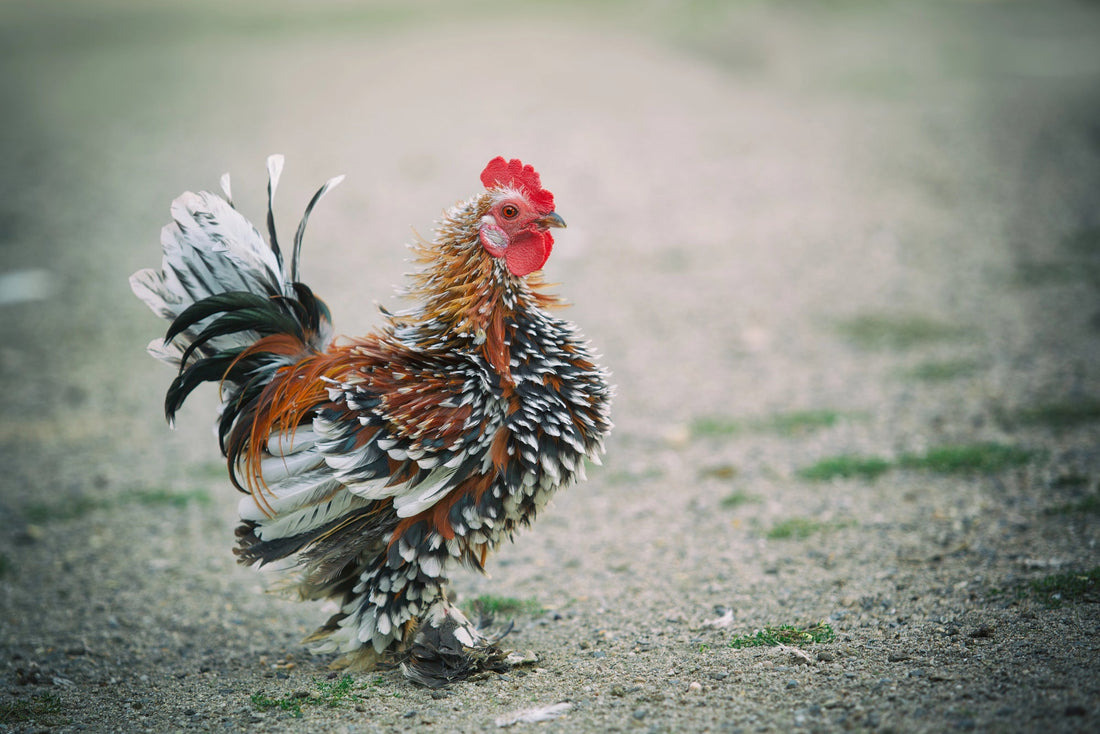In the diverse world of animal intelligence, chickens hold their own with a surprising ability: recognizing human faces. This post delves into the intriguing question of whether chickens can genuinely differentiate between human individuals, moving beyond fiction to uncover scientific truths. From their visual capabilities to their social interactions, we explore the depth of chickens' cognitive abilities, shedding light on how these backyard poultry perceive the world and us within it.
A Glimpse into Avian Intelligence
Chickens have long been part of human history, serving as a source of food, companionship, and even entertainment. But beneath their feathery exterior lies a complex brain capable of remarkable feats. Chickens exhibit a range of cognitive abilities, from problem-solving to emotional intelligence, challenging the traditional view of them as mere farm animals. Their capacity for recognition, particularly of human faces, is a testament to their nuanced and sophisticated brains.
Vision in the Coop: How Chickens See the World
To understand chickens' ability to recognize human faces, it's essential to first look at how they see the world. Chickens possess a high degree of visual acuity and can perceive a broader spectrum of colors than humans, thanks to their tetrachromatic vision. This enhanced color vision, combined with their ability to detect subtle movements, forms the foundation of their facial recognition capabilities, enabling them to discern individual features with surprising clarity.
The Science of Sight: Studies on Facial Recognition
Recent scientific studies have shed light on chickens' ability to recognize human faces. In controlled experiments, chickens have demonstrated the capacity to distinguish between different people, often using visual cues to identify familiar caretakers. These findings suggest that chickens not only recognize individuals but can also form memories associated with those individuals, such as their roles in providing food or care.
Beyond the Beak: Chickens' Social Cognition
Chickens' ability to recognize human faces is intertwined with their social cognition. In the wild, chickens live in complex social structures, requiring them to identify and remember the roles and hierarchies within their groups. This social intelligence extends to their interactions with humans, allowing them to identify and remember different people, and adjust their behavior based on past experiences with those individuals.
Emotional Connections: Recognizing and Responding to Humans
The interaction between chickens and humans goes beyond mere recognition; chickens can form emotional connections with their caretakers. They exhibit different behaviors based on their familiarity and comfort level with individuals, showing signs of distress or comfort depending on the presence of known or unknown people. This emotional response is indicative of their ability to not only recognize but also form attachments to humans.
Practical Implications: Enhancing Chicken Care and Welfare
Understanding chickens' ability to recognize human faces has practical implications for their care and welfare. By acknowledging their capacity for recognition and emotional response, caretakers can tailor their interactions to foster positive relationships with their chickens. This knowledge encourages more humane handling practices, improving the overall well-being of backyard poultry by ensuring they are cared for by individuals they recognize and trust.
Misconceptions and Myths: Separating Fact from Fiction
Despite compelling evidence, misconceptions about chickens' cognitive abilities persist. Skeptics may underestimate their intelligence, dismissing the idea of facial recognition as anthropomorphism. However, scientific research supports the reality of chickens' perceptual capabilities, challenging us to reconsider our assumptions about what chickens can and cannot do.
Implications for Animal Intelligence Research
The investigation into chickens' ability to recognize human faces contributes to the broader field of animal intelligence research. By uncovering the cognitive abilities of species traditionally viewed as lower in intelligence, scientists can gain insights into the evolution of cognition and perception across the animal kingdom. This research not only enhances our understanding of chickens but also prompts a reevaluation of intelligence in other animals.
Ethical Considerations: Treating Chickens with Respect
The recognition of chickens' cognitive abilities, including facial recognition, raises important ethical considerations. Understanding that chickens are capable of complex perception and emotional responses should inform how we treat them, advocating for more ethical and compassionate practices in their care and handling. As sentient beings with the ability to recognize and respond to us, chickens deserve respect and kindness in their treatment.
A New Perspective on Our Feathered Friends
The ability of chickens to recognize human faces is a remarkable testament to their intelligence and perceptual capabilities. This insight into their cognitive world challenges long-held assumptions about chickens, offering a new perspective on these familiar backyard poultry. By appreciating the depth of their intelligence, we can foster more meaningful relationships with them, grounded in mutual respect and understanding.

